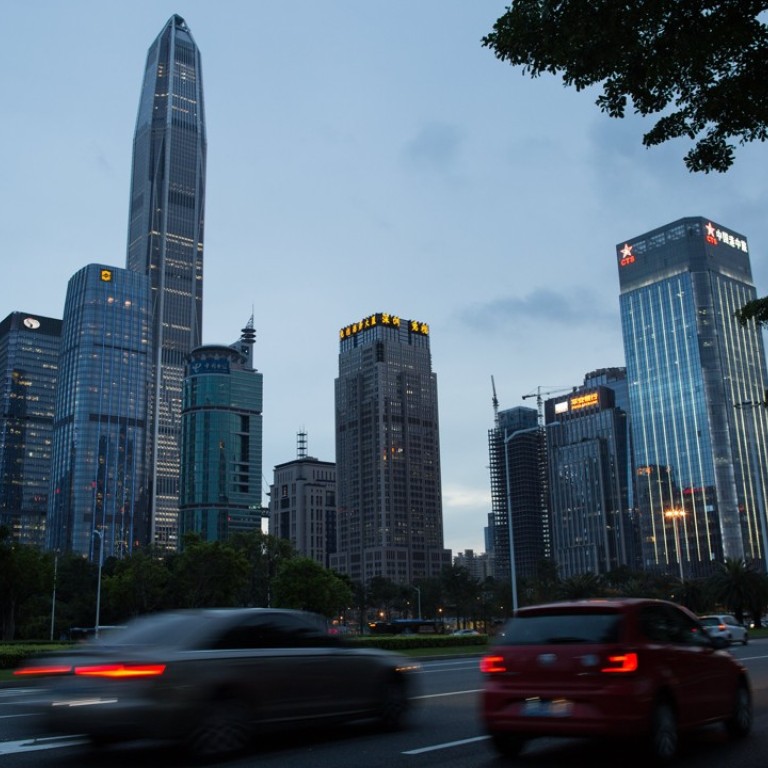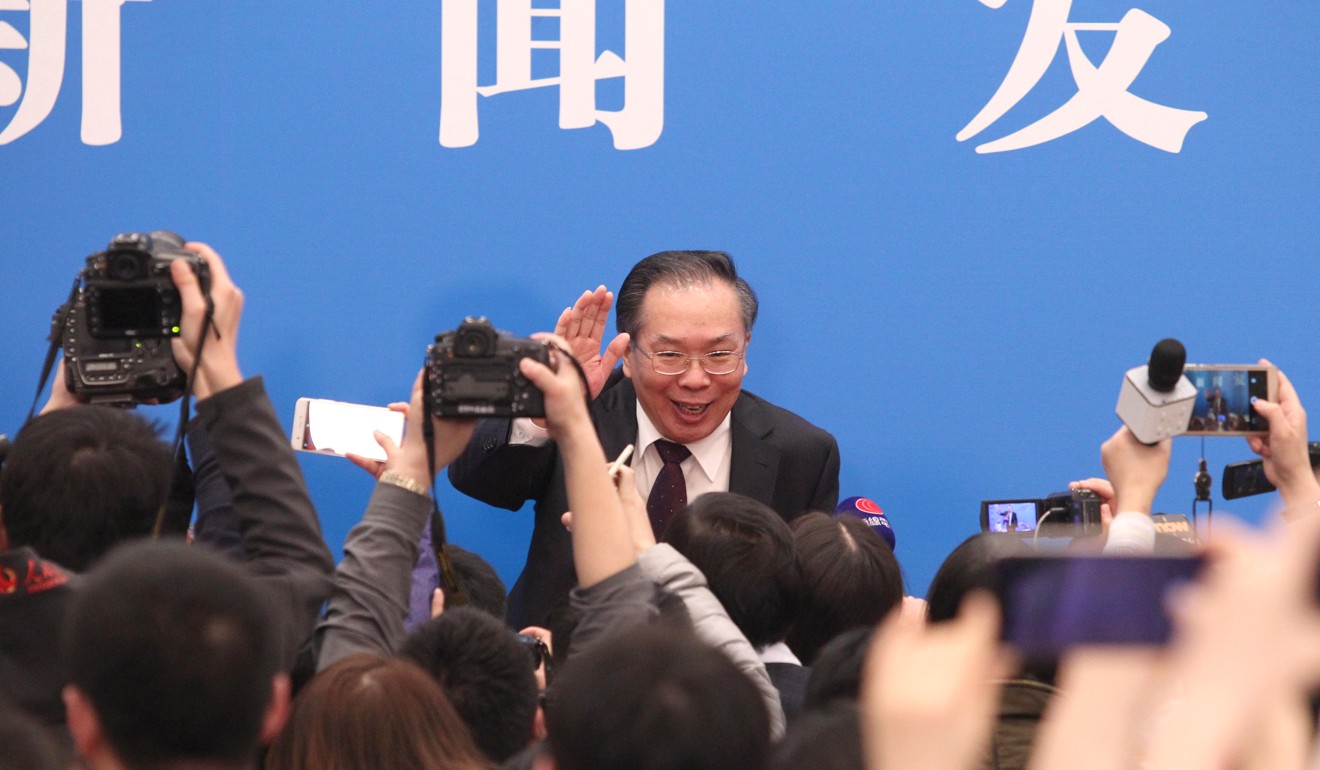
Beijing pushing forward ‘Greater Bay Area’ plan, top political advisory body says
Blueprint for an interconnected Pearl River Delta is awaiting approval, CPPCC spokesman says ahead of annual meeting
Beijing is pushing forward a plan for more mainland economic integration with Hong Kong and Macau and a blueprint to develop the “Greater Bay Area” is awaiting approval, a spokesman for China’s top political advisory body said on Friday.
The scheme to link the cities with nine others in southern Guangdong province was one of the key issues addressed by Wang Guoqing, spokesman for the Chinese People’s Political Consultative Conference, in a briefing ahead of the opening of its annual session on Saturday.
While media attention was focused on a plan to remove the presidential term limit from the constitution, allowing President Xi Jinping to stay in power beyond 2023, Wang did not respond to questions on the move from reporters at the end of the briefing.

Instead, he was focused on economic achievements and Beijing’s vision to turn the Greater Bay Area – spanning 56,000 sq km and 66 million people – into an integrated economic and business hub.
“The implementation of [the plan] will support Hong Kong and Macau’s integration with the mainland, bringing deeper economic cooperation and producing a win-win result,” Wang said.
“The blueprint on the joint development of the area designed by the relevant central government departments and also those from Guangzhou, Hong Kong and Macau, has been submitted for further approval.”
Wang said he expected the CPPCC delegates from these areas to give constructive advice on rolling out the plan.
He also lauded progress on state-owned enterprise reforms, saying mergers and restructures had seen revenue increase 59 per cent from 2013 to 2017, while profits were up 42 per cent compared to the previous five years. Beijing has been trying to overhaul the bloated, debt-laden sector since 2015.
The 13-day CPPCC meeting will overlap with the annual session of the National People’s Congress, the legislature, which begins on Monday. Known as the “two sessions”, they are China’s most important annual political meetings.
Politburo Standing Committee member Wang Yang was named chairman of the CPPCC presidium at a preparatory meeting on Friday, according to CPPCC Hong Kong delegate Jonathan Choi Koon-shum.
Wang is also expected to be elected chairman of the CPPCC in about two weeks, taking over from Yu Zhengsheng.
Choi said former Hong Kong leaders Tung Chee-hwa and Leung Chun-ying were selected as vice-chairmen of the presidium and are expected to retain their positions as vice-chairmen of the CPPCC.
Other Hong Kong delegates to join the presidium were former World Health Organisation director general Margaret Chan Fung Fu-chun, billionaire Victor Li Tzar-kuoi, Tourism Board chairman Peter Lam Kin-ngok, and Choi, head of the Chinese General Chamber of Commerce in Hong Kong. They are all expected to be elected to the CPPCC Standing Committee.


